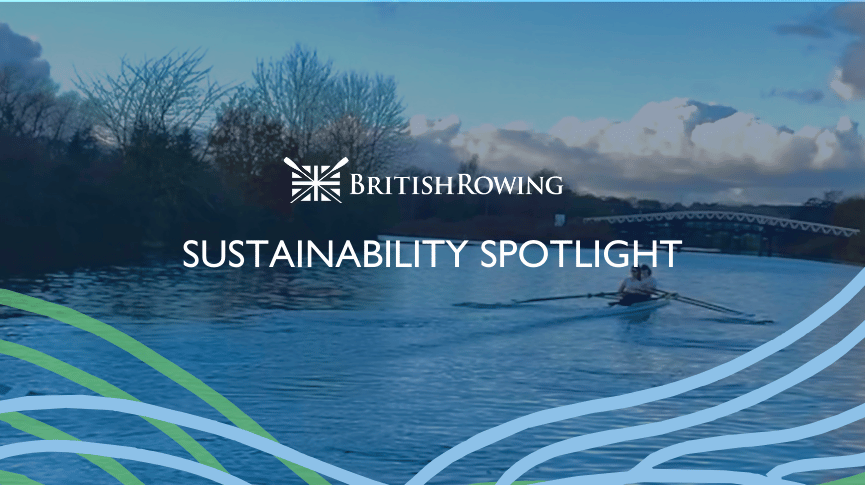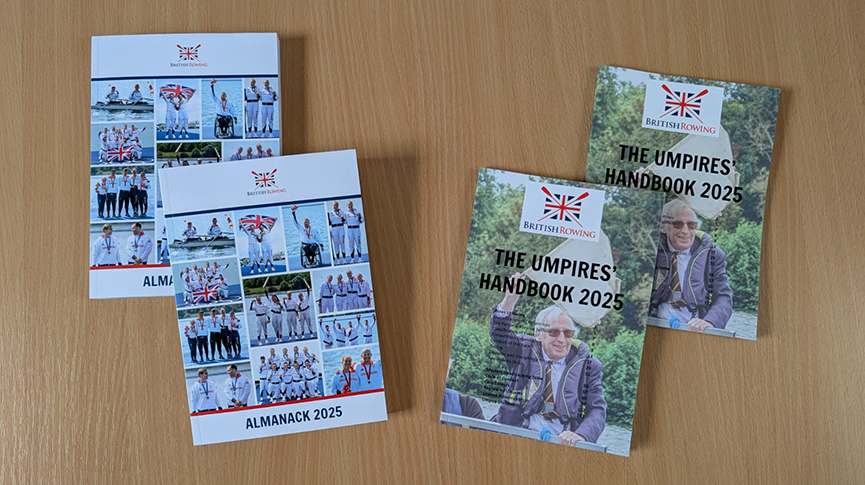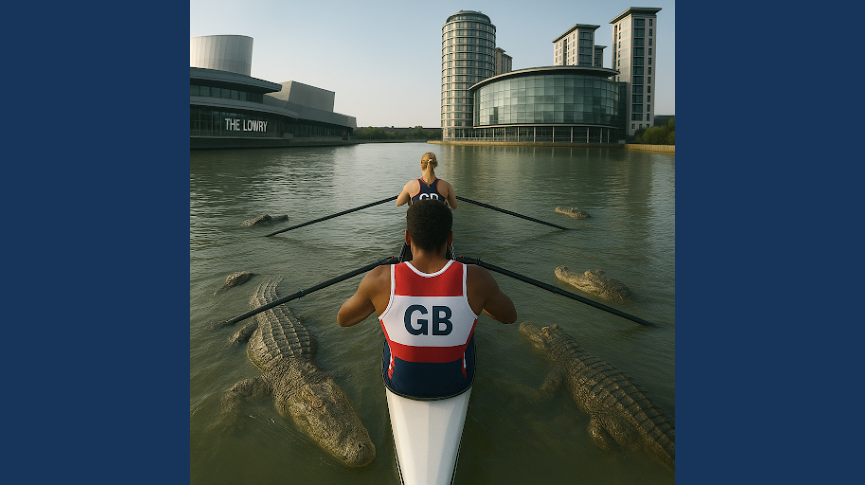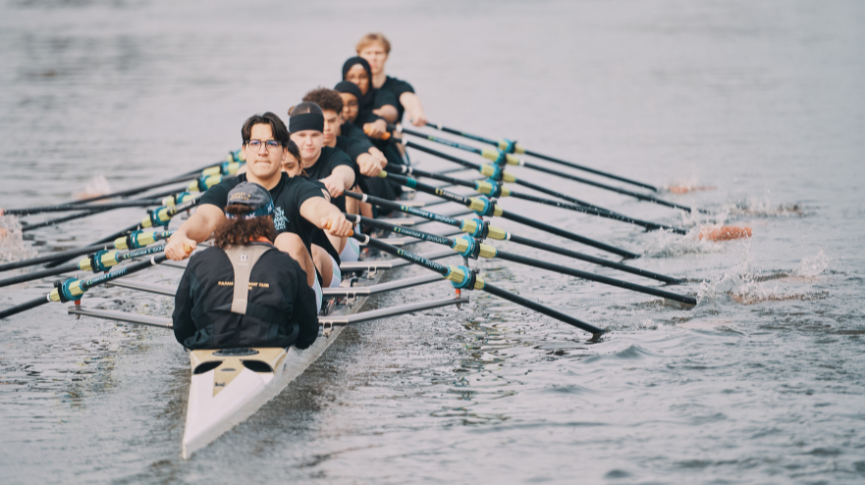Meet the Team: Caragh McMurtry
The spotlight this week is on European Championships and World Cup silver medallist Caragh McMurtry
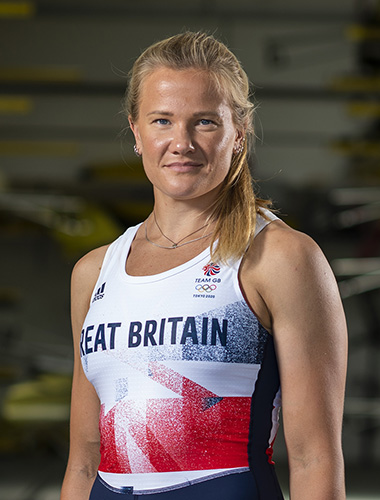 After first taking up rowing through Project Oarsome, Caragh McMurtry joined the senior GB team in 2013. Here she tells us about competitive instinct, beating her husband on the bench press and how an afterschool club gave her the chance to compete for GB.
After first taking up rowing through Project Oarsome, Caragh McMurtry joined the senior GB team in 2013. Here she tells us about competitive instinct, beating her husband on the bench press and how an afterschool club gave her the chance to compete for GB.
When did you first start?
I had just started at Bitterne Park Secondary School in Southampton when a couple of volunteer coaches from Coalporters ARC (Nic Chmarny and Alan Booth) set up an afterschool club, using funding from ‘Project Oarsome’, to help encourage state school kids into rowing. I was into pretty much every afterschool club at the time, so I went along to this one with my friends, messed around on the ergos a bit and then decided to try rowing on the water because it sounded like more of a laugh. The club was only a ten minute walk from my house, and it was something to do on the weekend – other than hanging around on street corners! We mainly rowed in coastal boats, but occasionally trained and raced in river boats if we fancied a change… and a challenge!
How did you get into rowing for GB?
I represented the region of Wessex at the 2007 Junior Interregionals and I think I won a gold in the pair, which was very unexpected because no one knew who Coalporters were or who we were as rowers. My coach Nic Chmarny had got talking with some of the other coaches and he came away from it with a fantastic idea. I think he said to me something like “you’re really strong, you should trial for GB”… and two years later I was racing at the 2009 Junior World Championships in the Junior Women’s Four. We won a silver medal, and that’s where the GB journey really began for me.
What’s the best thing about being part of the GB team?
I guess it gives you the opportunity to meet and train with like-minded people. I think successful athletes can have personality traits that people might deem intense or intimidating, but those traits actually make us more productive athletes and squad members when we’re training together in a team environment. So rather than feeling like a bit of an outcast because you always want more than everyone else around you, you can be proud of it and use it to push yourself and your team forward.
What’s the biggest challenge?
I’ve been through a lot of ups and downs, but in a successful training year I would say competing against my teammates in small boats for the national trials is the biggest challenge. There are more big boat seats than small boat seats, so all year we try to build really strong relationships with our teammates because ultimately we want to race in a boat with them come the summer. But when it comes to trials, we have to break down into small boats to race for our lives against the people we’ve come to care so much about – and it’s really hard to separate that emotion from the rowing. You want those bonds to be really strong because that will benefit the long term goal, but you have this strange hiatus in the middle of the training year in which suddenly you have to get absolutely cutthroat with each other… it’s very hard.
What are your career highlights?
I have a few highlights from the years. Among the tough times have to be some rewarding ones – otherwise why would we do it!? My first highlight I’ve already mentioned, which was winning a silver medal in the Women’s Four at the 2009 Junior World Championship. I won another silver medal in the Women’s Pair at the 2012 U23 World Championships, which was a really great experience. I’ve also won silver medals in the Women’s Eight at World Cups in 2014 and 2017… all the silvers are probably why I’m still rowing! Not officially racing for GB, I would say that winning Henley Women’s Regatta in the pair in 2012, and Henley Royal Regatta in the eight in 2014 and the four in 2018 were fantastic experiences – it’s great to race on home water, and the Regatta atmosphere is always really enjoyable. This year had gone very well for me up until the Olympics was postponed, but hopefully I’ll be able to add to this list next year.
What advice do you wish you could give your younger self?
To not be so hard on myself, and to just live in the moment a bit more. I, among many other athletes and high achievers, am very much guilty of being overly self-critical, and I tend to look for the next target too soon after an achievement. Being self-critical helps you to highlight areas for improvement, but too much self-criticism can be very damaging for your confidence and your ability to bounce back quickly. I wish I had had a bit more self-compassion over the years, and I wish I had celebrated a little more. But I guess that’s what the future is for!!
How did you react to the Olympic postponement?
I could definitely see it coming as news about the pandemic unfolded over the weeks, so I guess it was a case of gradual realisation and acceptance rather than a sudden shock. I think I was more concerned about my family’s health and safety than anything else by the time the announcement was made, and I saw the sense in the postponement. The playing field wouldn’t be level if the Olympics were held this year, and people wouldn’t be able to enjoy it whilst there’s no vaccine and friends and family are so at risk.
How are you finding training in lockdown?
I’ve actually been a bit ill so I haven’t been able to do loads of training, but what I have done has mostly been on the ergo in our garage. My husband cycles for a professional UCI team, so once I’m ready to do a bit more volume and intensity, I’ll get him to set me up on his Zwift account, and I’ll get stuck into some virtual racing – that’s if he’s okay with me destroying his averages. I’ve already damaged his ego by bench pressing a lot more than him in our circuit sessions – which have been great bonding experiences may I add! I also enjoy running, but I don’t want to flout the lockdown rules by doing too much of it.
Other than training, how else have you been spending your time during lockdown?
I’ve taken the opportunity to pimp up my garden and do some DIY in the house (like 85% of the country I imagine), and I’ve also had some time and a little energy to indulge in my favourite hobbies, such as painting.
What would you be doing if you weren’t a rower?
I was always torn between following my sporting dreams or my passion for the arts as a teenager, so maybe I would be an artist of some kind. But more likely, I would be competing at a high level in another sport, because I have a highly competitive side to my personality that needs to be exercised!
Follow Caragh on Instagram @caraghmcmurtry.


